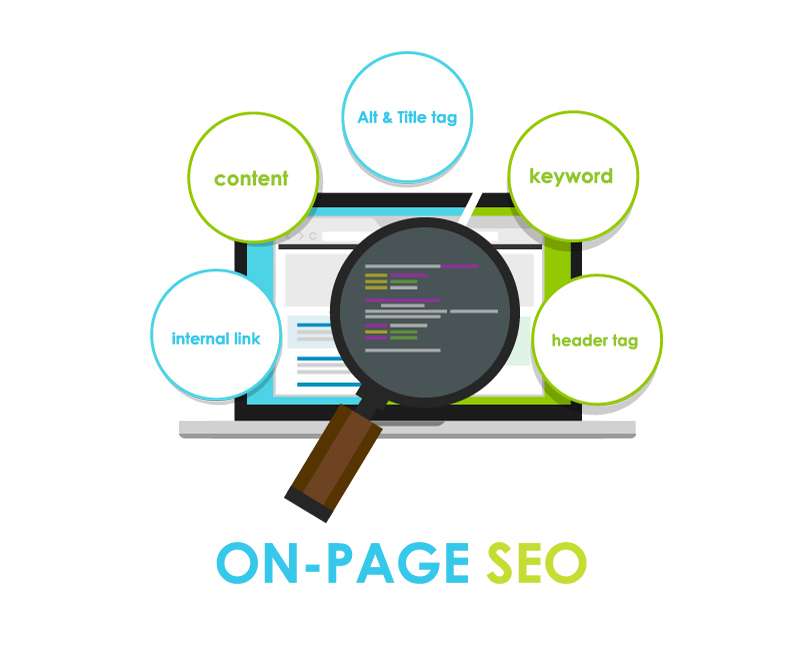Are you a business owner with a long-standing website? Consider how well it ranks across search engines, If it isn’t prevalent in search engine results, your SEO Services may benefit from some work. The steps involved in this process are collectively known as on-site SEO.
Also known as on-page SEO, on-site SEO is defined as the act of optimising webpages of a site. The goal of this is to appear more prominently upon searching for specific terms. This will lead to different instances of growth, including boosted traffic and increased leads. Any London SEO Agency that specialises in London SEO, as well as SEO in general, will say the same. Before digging deep into your site, changing long-standing content, there are a few key points to consider.
There is much more to know about on-site SEO than simply the website to be optimised. A business owner may know every detail about the site in question, from the specific fonts used to even the number of internal pages associated with it. On-site SEO is a detailed process, but with an experienced SEO agency on your site, it can be expertly carried out. To get started, here are some of the do’s and don’ts to follow.

What You Should Do-
Understand and Utilise Target Keywords – Depending on how long a company website has been in existence, a surplus of content may be seen. If said content fails to rank, it may be due to a lack of focus regarding keywords. Keep in mind that each piece of content should have a target keyword that’s prevalent from the title to the body of the content itself. Case and point, if an IT company desires to rank for “cloud computing,” this term should begin at the title and carry over into the proverbial meat and potatoes of the content itself. Target keywords are paramount to on-site SEO efforts.
Ensure the Website’s User Experience – Another component of on-site SEO is the user experience. In other words, how well will a website keep visitors around for? Less refined interfaces tend to result in elevated bounce rates, but there are a few smart changes online marketing companies will suggest. First, confirm that the website is responsive, able to be easily viewed across different devices. Second, minimise the amount of time needed for said website to load and move from one internal page to the next. These are just a collective sample of ways to improve the user experience, which will have a positive impact on on-site SEO.
Write for People, Not Search Engines – Several years ago, it wasn’t unheard of to stuff content with keywords for the sake of achieving higher rankings. Search engines have evolved over the years, however, and those same practices hinder modern SEO efforts. To improve on-site SEO, content creators must put people, not search engines, first. Focus on delivering content that’s equal parts free of spelling errors, grammatically correct, and able to deliver value. By prioritising human beings in SEO endeavours, ranking across different search engines like Google and Bing will become a greater possibility.
What You Shouldn’t Do-
Ignore Tagging – When it comes to the most vital aspects of on-site SEO efforts, tagging should take precedence. Title and meta tagging are essential to SEO efforts in general, especially considering how search engines prioritise them when generating results. Furthermore, the benefits of tagging extend beyond SEO. The more refined tags related to titles, meta descriptions, and the like are, the likelier it is that content will become shareable. This will attract more attention from a wider audience. To simply ignore the importance of tagging would be an oversight, which will negatively impact on-site SEO in the long term.
Forgoing Content Auditing – Defined as the process by which website content is closely examined and reviewed across all pages, content auditing plays a pivotal role in on-site SEO. To non-business owners, this begs the question: why should a content audit be performed? One common reason is to focus on content that may not be performing and determine how to approach it again. This can be done by updating statistics and percentages or being more mindful when implementing keywords. A content audit can also help reduce costs, as certain pieces of content may be repurposed, reducing the effort needed to create brand new material. A content audit can have a huge on-site SEO impact.
Limit Keywords – When conducting keyword research, it’s important to focus on as many relevant terms as possible. One of the reasons for this is that it will help diversify content. When readers see that a website can cover myriad topics, it builds a positive reputation. Moreover, this strategy will help prevent competition with oneself. If multiple internal pages focus on the same keyword, they will struggle to rank, as they will needlessly battle each other for search engine real estate. Instead of limiting keywords, expand the pool to include various terms, provided they apply to the company performing SEO.




